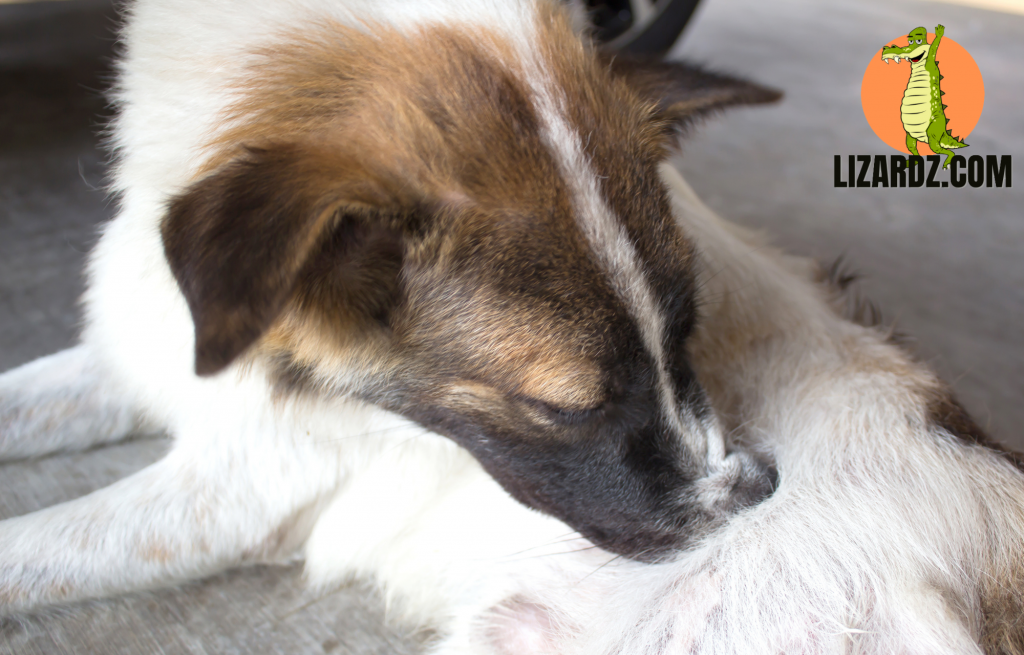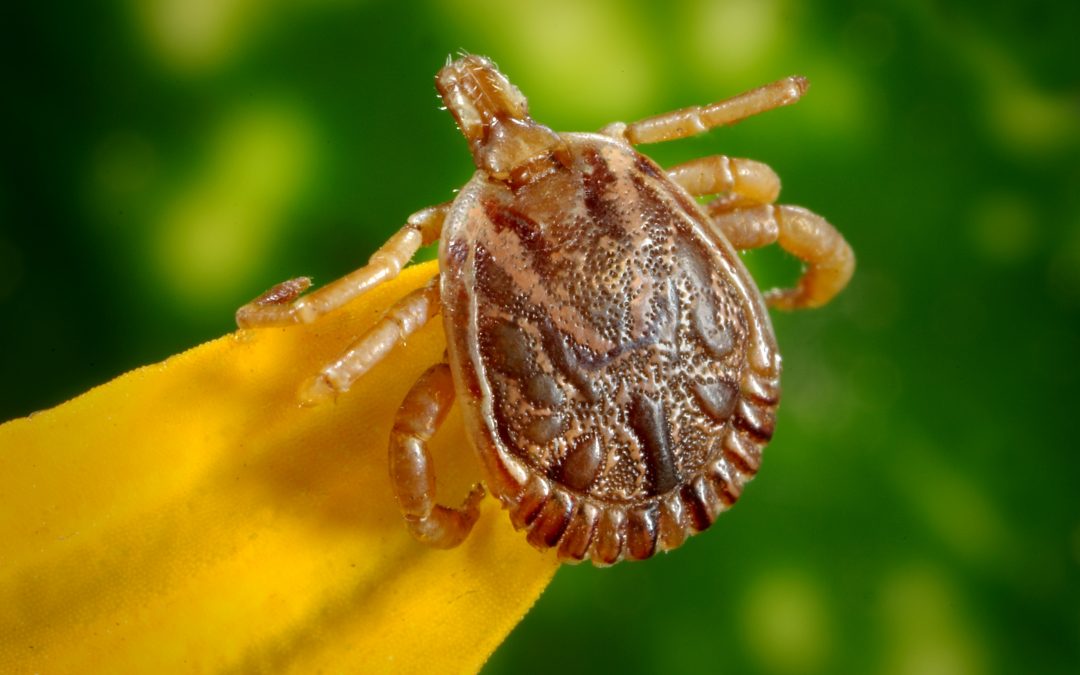Quick! Name two natural enemies just about every pet has in common! If you said fleas and ticks, you’re right. Excessive scratching, biting and even licking can be signs that fleas have invaded.
Fleas
Though these tiny insects are more likely to be a pest in the spring and summer months, flea infestations can, in fact, be a problem all year round, particularly for indoor animals. And sometimes, they’re more than just a nuisance. Pets can have severe reactions to flea bites, as can their humans, and very young or very old animals are at risk of developing anemia if they become heavily infested. That’s because fleas are actually tiny bloodsuckers, and heavy infestations can quickly weaken a pet.
Prevention
Flea care should always begin with prevention, simply because it’s much easier to keep fleas off your pet than it is to get rid of them once they’ve taken hold. For best results, you should begin your flea prevention methods before your area’s flea season begins and continue until after the season has come to an end.
Preventing fleas is actually pretty easy, and the task is well worth the time and effort. Invest in a flea collar, oral medication or spot treatment which is appropriate for your type of pet. If your pet spends a great deal of time outdoors or in someone else’s home around other animals, be careful to check him for fleas when he comes inside your home. Even if he picks up a few of the critters, careful monitoring and a timely bath with a quality flea shampoo should keep infestations under control.
Elimination
Elimination of fleas usually takes the form of one of four things: Flea collars, spot treatments or pills. Collars work only to keep adult fleas off of your pets, while oral treatments (usually tablets for dogs and liquid suspension caplets for cats) will poison the fleas which are on your pet and also prevent the females from hatching eggs. Neither product contains insecticide. Shampoos kill any adult fleas currently on your pet, as well as ridding your animal of flea eggs.
Spot treatments are usually administered by placing a drop or two of flea-prevention liquid between your pet’s shoulder blades. Most spot treatments kill not only adult fleas, but also eliminate eggs and larvae as well. Spot treatments also can be effective in preventing further infestations for up to four weeks. Spot treatments are usually considered stronger than the other alternatives and are often available only through your veterinarian.
Don’t forget to treat your pet’s environment. If you skip this step, you’re missing as many as 90 percent of the fleas with which your pet comes into contact. Vacuum thoroughly; afterward, seal the vacuum cleaner bag in a trash bag and immediately dispose of it outdoors. Then, either clean or remove all of your pet’s bedding and toys. You’ll probably also need to clean your own bedding, and possibly any clothing that might have been in contact with fleas.
Once you’ve washed and vacuumed the infested areas, you’ll probably need to finish by using some type of insecticide.
Ticks
Ticks are easier to deal with than fleas because they typically don’t infest a home and don’t attack your pet in large numbers. However, they’re also more dangerous than fleas because they carry some very serious diseases and can be harder to detect.
Ticks are actually tiny spiders which insert their heads under an animal’s skin and drink blood. They are carriers of Lyme disease, babesiosis, Rocky Mountain spotted fever and ehrlichiosis, among others. Cats may also get cytauxzoonosis, a disease which usually proves fatal.
Many of the same preventions and treatments you use for fleas can also be implemented for ticks. Flea collars, for example, are usually formulated for ticks as well, as are most flea insecticides and yard sprays.
If your pet does have a tick, fine-pointed tweezers are the best instrument to use for removal. Grasp the tick and gently pull it straight out, being careful to get the head. If you’re unsure about removing the tick yourself, take your pet to their vet as soon as possible.
Even if you take care of the tick yourself, you should still have your pet checked by a vet.
Flea Prevention Products
Uh oh! Your dog is scratching incessantly, and you’re pretty sure the problem is fleas. You know you’ve got to take care of the infestation before it gets worse. But, what should you use?
There are a plethora of flea control products on the market, and different people swear by different products. Here is a look at a few of the brands that have received good reviews. As with any medical treatment, you should consult your veterinarian before use to make sure a product is right for your pet. Some flea control products may not be suitable for certain types of pets, and pets with certain health risks, or pets under the age of eight weeks, may need to avoid some products.
Some flea control products may be available only through your veterinarian.
Spot Treatments
Advantage
This brand has earned high marks from a veterinarian in the San Diego chapter of the House Rabbit Society. Advantage is the brand name of imidacloprid, a topical flea control agent which is applied at the base of your pet’s neck or between the shoulder blades. It is said to begin killing fleas within minutes, and one treatment lasts about 30 days.
Advantage makes products formulated for both dogs and cats, though the veterinarian who recommends it attests that it can be used safely on rabbits.

Dog biting at ichy fleas
Bio-Spot
Bio-Spot kills fleas and ticks for up to four weeks and even protects against mosquitoes for as long as four months. It can be applied directly to the skin, but it is for use on dogs only. Active ingredients permethrin and biolar kill adult fleas and prevent flea eggs from forming, and fleas don’t have to bite your dog to be affected. This makes it a good choice for dogs affected by flea allergy dermatitis.
Frontline Plus
Like Advantage flea control, Frontline Plus is a topical agent which begins killing fleas quickly and lasts for 30 days. However, Frontline Plus may not be suitable for pets other than the dogs and cats for which it is formulated because its active ingredient is fipronil, a substance which works by affecting the flea’s nervous system. Frontline Plus should be applied in a single spot between your pet’s shoulder blades, next to the skin.
K9 Advantix
This product, formulated for dogs only, claims to be the fastest of the lot, as it begins stopping flea bites within five minutes and kills fleas and ticks within 12 hours. It also repels mosquitoes and uses a combination of imidacloprid and permethrin. It lasts for 30 days and is applied between your dog’s shoulder blades.
Revolution
This isn’t your typical flea control product. Yes, it does kill fleas, but it also prevents heartworms and treats and controls both roundworms and ear mites. There is a formula for both cats and dogs, and it is applied between the shoulder blades once a month.
Oral Treatments
You can also opt to treat your pet’s flea problems with oral treatments such as Capstar, Program or Sentinel. Dosages will depend on the weight of your pet, and they are given about once a month. These products are usually formulated for dogs and cats only, though some say that Program has also been effective when used on rabbits.
Sprays
Frontline Spray has gotten excellent reviews from consumers. It can be easily applied directly to your dog or cat, and it can last for up to 30 days. Adams also manufactures a spray to protect dogs and cats from fleas, ticks and lice.
Other Products
If you’re unable to use a spot-on treatment or flea spray for your pet, there are other options. There are a wide variety of flea collars, shampoos and dips available. Work with your veterinarian to determine the brand and type of flea control product that’s right for your pet.
Small Animal Care
Though most topical flea products are for use on dogs and cats only, there are a few products out there for owners of small animals and exotic pets. For example, bird owners may want to invest in Scalex, a spray which protects birds from mites and lice. Doxycycline, sometimes sold as Bird Biotic, is handy for non-specific bacterial infections.
Ultra Care makes a flea and tick spray which also protects against mites and mosquitoes. It’s safe for use on rabbits, hamsters, gerbils, mice and guinea pigs.
For reptiles, De Flea Reptile Relief is a spray which uses natural ingredients to kill ticks, mites and other parasites.
For other exotic pet flea products, consult a veterinarian which specializes in that pet.

